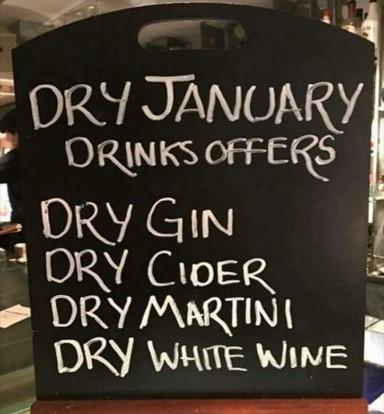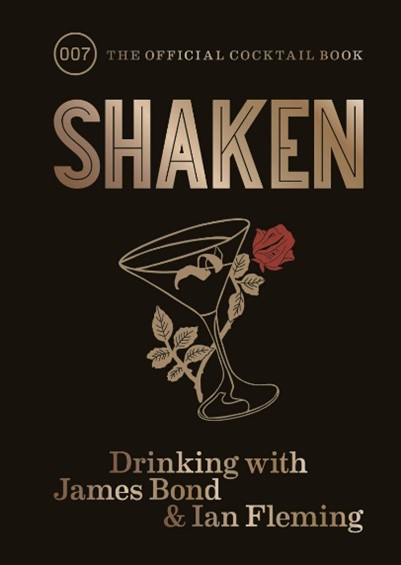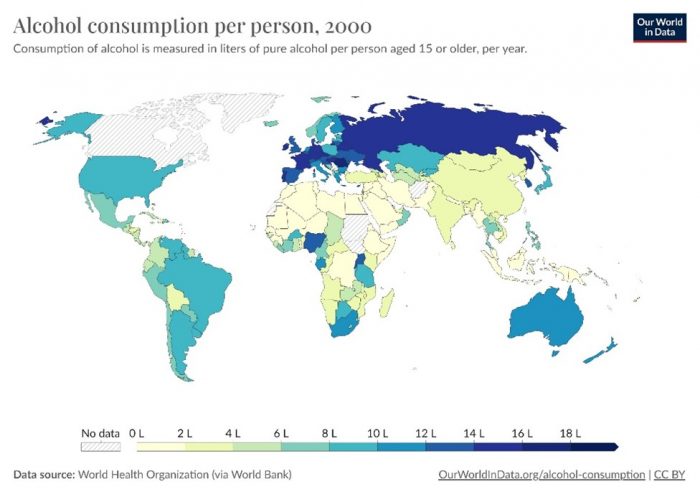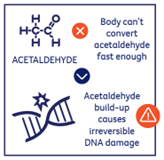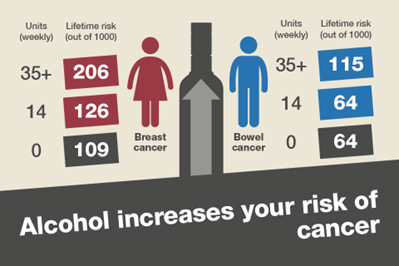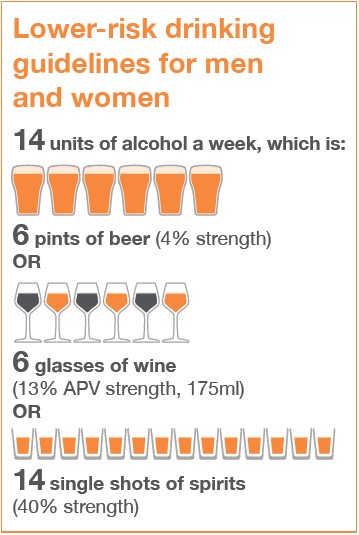Are We Becoming a ‘Sober Curious’ Nation?
Posted by Phil Heler on February 4, 2024Our habits are now moving well beyond ‘Dry January’. There is now a larger cultural shift to now what is called ‘sober curious movement’ in an increasing number of young adults.
By the time I send this out January will be done and dusted. For some of you, not a drop of alcohol will have passed between your lips. You would be in good company as just under 9 million other people in the UK have joined you. ‘Dry January’, first organised by the charity Alcohol Change UK in 2013 (when 4000 people participated), challenges us to abstain from alcohol for the month.
In most societies, of course, alcohol has historically, and continues to play an important role in our social engagements, and provides a form of bonding. Social drinking or moderate alcohol consumption is also indeed pleasurable.
The novelist Ian Fleming transplanted his private indulgences into his fictional character James Bond. In ‘Goldfinger’ a sophisticated appreciation of alcohol is wonderfully demonstrated in the classic line; ‘My dear girl, there are some things that just aren’t done, such as drinking Dom Perignon ’53 above the temperature of 38 degrees Fahrenheit.’
The European Region (as defined by the WHO and covering 53 countries including Russia) has the highest alcohol consumption in the world. It averages 9.5 litres per year of pure alcohol (or ethanol) per person over the age of 15 years old. Alcoholic drinks are usually converted to pure alcohol. But to give you an idea, 9.5 litres of ethanol is equivalent to 190 litres of beer, 80 litres of wine or 24 litres of spirits. That’s quite a lot.
Germany (10.6 litres) has the highest amount of alcohol consumption among the EU’s biggest countries in terms of economy and population, followed by France (10.4 litres), Spain (7.8 litres) and Italy (7.7 litres). So, Germany takes first prize. This could be seen as unexpected, because as Kingsley Amis (one of our greatest writers) once said ‘a German wine label is one of those things that life’s too short for’!
However, alcohol consumption in the European Region has dropped from 12.7 litres of ethanol in 1980 to 9.8 litres in 2020, which corresponds to a 23 per cent decrease. Despite this we still drink more than anybody else. But as Bob Dylan once sang ‘the times they are a-changin’.
Our habits are moving well beyond ‘Dry January’. There is now a larger cultural shift that has been gaining traction in recent years, especially among Generation Z and Millennials. There is a definitive trend in what is being called a ‘sober curious movement’ in an increasing number of young adults. The demand is recognised in the revolution that is taking place in the no/low alcohol market sector. It is also claimed that half the UK adult population has bought a no/low alcohol drink in 2022.
The days of the thin-tasting alcohol-free beers that were previously haunting supermarket shelves are long gone. We can now expect to find fuller-bodied equivalents that taste like the real thing. Guinness is in the process of tripling production of its zero-alcohol brand at its brewery in Dublin in response to demand. Tesco recently revealed that sales of no/low-alcohol beer were 25% higher in the summer of 2023 than they were at the start of the year.
In pubs, sales of low and no-alcohol beer have jumped by 23% during the past year compared with the previous 12 months, according to the British Beer and Pub Association. We are now more health conscious than ever before which can only be a good thing.
Unfortunately, the main problem with alcohol, whether your Martini is shaken or stirred, is that it contains ethanol. When we digest ethanol we break it down to acetaldehyde, which is a toxic chemical and a potent human carcinogen.
This generates what we call reactive oxygen species (chemically reactive molecules that contain oxygen), which can cause damage to DNA, other proteins, and cell membranes in the body through a process called oxidation. It also impairs the body’s ability to break down and absorb a variety of nutrients that may have a protective effect against cancer. It’s estimated that between 3-4 out of every 100 cases of cancer in the UK are caused by alcohol. That’s somewhere between 11,500 – 12,500 new cases every year.
Guidelines for alcohol consumption issued in the UK by our Chief Medical Officer now mean that we have one of the lowest recommended upper limits for alcohol consumption in the world. We are now one of the few countries that set equal limits for both men and women at 14 units per week. Our guidelines, although low compared to other countries, are well supported by scientific research. The guidelines are well founded and based on sound evidence.
The most sophisticated large scale global study of the impact of alcohol on human health ever conducted was produced six years ago and published in the Lancet. It is difficult to accurately estimate the risks of alcohol on our health, but the large size and design of this study meant that its findings were both reliable and relevant to all countries around the world. It showed that drinking more than 100g of ethanol per week (which in real terms is 12.5 units) increases the chance of early death due to all causes.
This study was comprehensive. It comprised a collaboration of 120 researchers worldwide, from many regions including Australia, Europe, Japan, the UK and the US. One key aspect of the study was that it followed the lives of almost 600,000 drinkers. It showed that of this number, people who drank more than 12.5 units (100g) of alcohol a week were likely to die sooner than those who drank no more than this amount.
The overall results applied equally to women and men. The researchers estimated that life would be shortened by an average of 1.3 years for women and 1.6 years for men for people aged 40 who drank above the UK weekly limit in comparison with those drinking below the limit.
This high-quality study provides realistic evidence to support the current UK guidelines advising people to drink no more than 14 units a week. According to statistics expert Professor David Spiegelhalter (who is quoted on the NHS website) “people who drink at the current UK guidelines suffer no overall harm in terms of death rates”. Just for once we might be doing something right in the UK!
